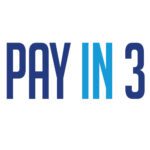£1699.00 Original price was: £1699.00.£1399.00Current price is: £1399.00.
In stock






JRC NRD-545 DSP Receiver, Despite its outward good looks, the real power of this receiver is inside. The NRD-545 DSP is different from any receiver you have previously owned. Clear, distortion-free sound reproduction is possible through the magic of true digital signal processing at the IF level. The receiving system employs a triple conversion circuit with IFs at 70.455 MHz, 455 kHz and 20.22 kHz. The NRD-545 uses a 40-bit extended floating point Digital Signal Processor with an 18-bit over-sampling system A/D converter and a 16-bit D/A converter. The DSP functions on 13 types of circuits after the IF, previously configured using analog circuits. DSP is used for all-mode detection including AM synchronous detection (ECSS). Incredible selectivity characteristics are achieved by the use of an Infinite Impulse, structure concurrent Chebyshev-type digital filter. In English this means, the NRD-545 gives you a continuously variable bandwidth from 10 Hz to 10 kHz in 10 Hz steps. You virtually have 990 different bandwidths, each with excellent adjacent channel rejection. DSP is also used to control Pass Band Shift, another tool to reduce QRM. A 256 step DSP Noise reduction circuit and 256 step DSP Beat Canceller and DSP Auto-Track Notch are othertools in your arsenal to dig out difficult DX signals. The DSP AGC works in all modes and is continuously variable from .04 to 5 seconds in SSB/CW/RTTY. 1000 Memories store: frequency, mode, bandwidth, ATT, AGC and step. Other refinements include: keypad, DSP Squelch, RS-232 port, ECSS, Dial Lock, Tone, RF Gain, Scan, Sweep, Mute, Dimmer, Clock-Timer, Adjustable Dial Torque, Attenuator, modular construction and two Noise Blankers. A basic Baudot RTTY demodulator, feeding the RS-232 port, is even included. You may customize many functions of the receiver by simply pressing the [FUNC] key followed by the [ENT/kHz] key. Twenty five parameters may be set to your personal needs. Click here to view user setups. The NRD-545 operates from several power sources including: 100, 120, 220 or VAC ± or from 12 to 16 VDC (13.8 VDC). This switch is located on the rear panel.
The NRD-545 is without question, the most sophisticated receiver ever developed for the hobby market.
(Please note that this radio does not receive the FM broadcast band).
DSP FUNCTIONS
DSP All-Mode Detection
DSP signal detection in all modes including LSB, USB, CW, RTTY, FM, AM and ECSS.
DSP IF Filter
Superior selectivity is achieved by a simultaneous Chebyshev type digital IF filter with an infinite impulse response configuration. The pass bandwidth is continuously adjustable from 10 Hz to 9.9 kHz in 10 Hz steps (BWC).
DSP Pass-Band Shift (PBS)
Radio interference is pushed out of the band by shift the center frequency of the digital IF filter upward or downward in the variable range of ±2.3 kHz (in 50 Hz steps).
DSP Noise Reduction (NR)
Signal processing is adjustable in 256 steps, allowing the most audible conditions to be set. The NR function is effective for such noise that the noise blanker cannot handle.
DSP Beat Canceller (BC)
Periodic signals such as beat sounds (hets) can be exalted and cancelled.
DSP Noise Blanker (NB)
NB-1 (narrow blanking width) and NB-2 (wide blanking width) can be switched over and the NB detection level is adjustable.
DSP Notch Filter (NOTCH)
Beat sounds are attenuated (>40dB) using the steep attenuation characteristic of the notch filter. Despite its steep characteristics, beat sounds are digitally processed and attenuated when the NOTCH is reset. It is adjustable within ±2.5 kHz (in 10 Hz steps). The Notch follows in the range of ±10 kHz even when the tuning dial is rotated.
DSP Notch Automatic Gain Control (AGC)
Digital AGC is applied to all modes (except WFM). The AGC is continuously adjustable between 0.04 and 5.1 seconds in 20 msec. steps in all modes except FM, AM and AMS.
DSP Beat Frequency Oscillator (BFO)
The BFO generates signals in the LSB, USB, CW and RTTY modes.
DSP RF Gain (RF)
The information transferred to the RF GAIN control via the A/D converter is entered into the DSP to adjust gain inside the DSP and the gain of the primary IF amplifier.
DSP Squelch (SQ)
The Squelch function is available in all modes.
DSP Tone Control (TONE)
The audio quality may be adjusted in all modes (except RTTY & WFM) in the range of 1 to 10 kHz.
DSP S-Meter
The signal level is determined in reference to the input signal to the DSP and the level is converted into an antenna input level, which activates the S-meter.
Frequency Range ….. 100 – 30000 kHz
Power …………… 100/120/220/240 VAC
12-16 VDC 30W or less
Antenna Impedance … 50 ohm @ Low and 600 ohm @ High
Selectivity (-6dB)
Wide 4.5 kHz
Inter 2.4 kHz
Narrow 1.0 kHz
FM-N 10.0 kHz and
variable from 0.01 to 9.99 kHz
Memory Channels ….. 1000 (Freq, Mode, BW, ATT, AGC & Step)
Audio Output …….. 1 Watts at 4 Ohms
Standard Steps …… 1, 10, 100 Hz, 1, 5, 6.25, 9,
10, 12.5, 20, 25, 30, 100 kHz
Intermediate Freqs. . 1st IF = 70.455 MHz
2nd IF = 455 kHz
3rd IF = 20.22 kHz
Temperature ……… 0° to 50°C (32° to 122°F)
Dimensions ………. 330x143x327 mm
Weight ………….. 7.5 kg